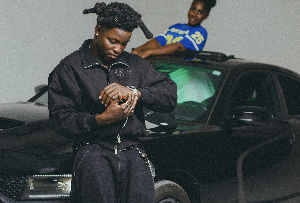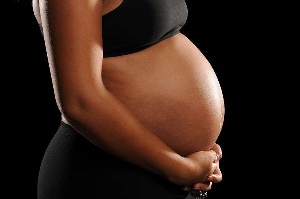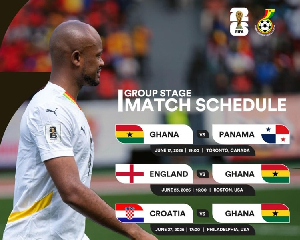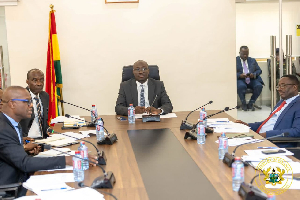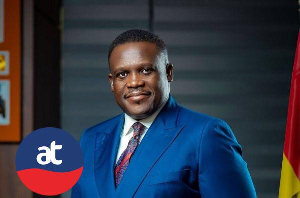When Victor Ikpeba missed a penalty in Nigeria’s ill-fated 2000 Africa Cup of Nations final defeat by Cameroon on home soil, he was already in decline.
For a people as superstitious as Nigerians, they probably feared the worst when the then Borussia Dortmund forward stepped up to take the Super Eagles’ fourth kick of the shootout against the Indomitable Lions.
At the time, Ikpeba, though 26, wasn’t enjoying the best time in the Bundesliga having moved from Monaco months earlier in summer 1999.
The Prince of Monaco never truly hit the heights of his Ligue 1 spell, which culminated in an incredible 1997 that saw him named African Footballer of the Year.
While Brazilian striker Sonny Anderson led the domestic charge for Les Monegasques with 19 league goals, the dainty West African, who netted 13 in the championship success, almost single-handedly carried the French heavyweights to the Uefa Cup final.
Ikpeba finished the 96/97 competition with seven goals, one behind Inter Milan’s Maurizio Ganz, as Monaco were eliminated by the Nerazzurri in the Last four 3-2 on aggregate. Expectedly, the Nigerian scored both goals against the eventual winners from Italy.
The upshot of such an amazing campaign was the forward being named the best on the continent, an award he deserved without a doubt.
Victor Ikpeba UCL Monaco 98 He’d been a beneficiary of a bright spell for Nigerian football in the 1990s, where they overcame years of underachieving to win the Africa Cup of Nations in ‘94 and Olympic Gold two years later. Three players from the West African nation were voted Africa’s best between 1994 and 1999, emphasising the excellence of many of the nation’s top stars at the time.
Still, Ikpeba is seldom put in the conversation when the most iconic Super Eagles’ players are being mentioned.
Despite being largely magnificent in his heyday in the Principality, the attacker didn’t enjoy a sustained period of success after leaving Ligue 1, or for the Super Eagles.
The 1994 Afcon winner may have netted 22 goals in all competitions in 97/98 and 11 in his final season at Monaco, but his career plummeted after his departure. Before 27, the forward began to plateau and failed to recapture his form from the early 90s to the end of the decade.
Even more poignant for Ikpeba is the fact he never truly dominated an international tournament despite his undoubted ability ay his best. In fairness, given his youth at Afcon ‘94, chances of indeed featuring often as a vital component were slim.
Unfortunately for the former Real Betis man, Nigeria didn’t participate at the 1996 showpiece in South Africa, while they were banned from competing two years later.
While another Super Eagles icon Jay-Jay Okocha bore the brunt of the nation’s absence in 98 (he surprisingly came second in the voting for the continent’s finest), not playing at either continental competitions saw the West African giants fail to truly establish their dominance at the time.
It also robbed Ikpeba of the opportunity of dominating at an international showpiece in his prime.
VICTOR IKPEBA BORUSSIA DORTMUND 12151999 Instead, the former attacker isn’t considered in the same breath as greats like Segun Odegbami, Rashidi Yekini or Stephen Keshi.
Neither is he placed alongside Okocha or Nwankwo Kanu, the two exemplary icons of his generation.
Indeed, he arguably falls below Joseph Yobo, Vincent Enyeama and Mikel John Obi, three stalwarts of the Super Eagles who, more or less, formed the team's spine for nearly a decade after Jay-Jay and Kanu's retirement.
The centre-back had the longevity the ex-Monaco man lacked, Enyeama produced several top performances between the sticks for the African giants, while Mikel grew into a talismanic role for the nation, combined with intermittent top showings for Chelsea that peaked with Champions League success in 2012.
While Ikpeba is recognised for his contribution to Monaco’s success in the mid-90s, he certainly falls a rung or two below the celebrated Super Eagles icons of all-time due to a short-lived prime and the nation’s unfortunate absence from the showpiece in his best years.
Africa Sports News of Friday, 12 June 2020
Source: goal.com
Ikpeba: Where does the Prince of Monaco belong among Nigeria’s greats?
Entertainment
